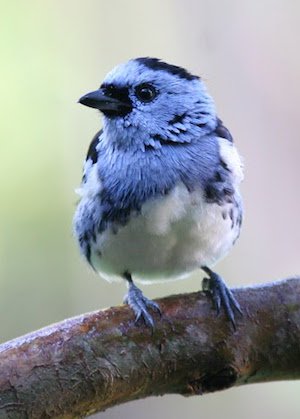State of Rio Grande do Norte

Birding Rio Grande do Norte
Rio Grande do Norte, literally “Large River of the North”, pronounced is one of the states of Brazil, located in the northeastern part of the country, on the edge of the South American continent. Because of its geographic position, Rio Grande do Norte has a strategic importance. It is the land of the folklorist Câmara Cascudo and is second in the world having the purest air, second only to Antarctica, according to NASA. Its 410 km (254 mi) of sand, much sun, coconut palms and lagoons are responsible for the fame of beaches, such as the secluded white sandy shores of Praia de Cajueiro, Genibapu (to the north of the capital, Natal), with sand dunes reaching 50 m (164 ft) in height. The beach of Baía Formosa, the prettiest of the south coast, has falésias, stretches with reefs and very popular for surfing. To the south, the beach of Sagi, a little more rustic, has clear waters and small dunes. In Natal, beside beaches, there are other tourist attractions, such as the fortress of Reis Magos and the Parque das Dunas, the second largest urban park in the country.
Rio Grande do Norte is dominated by its coastline. The state is famed for its beaches and sand dunes, and the air is, according to NASA, the second-cleanest in the world after Antarctica.Two climates predominate: humid tropical, in the oriental littoral, and semi-arid, in the remaining (most part) of the State (including the North coast). The rainforest which once covered most of Brazil’s coast had its northern end in the south of Rio Grande do Norte; the area north of Natal, the capital, is under dunes, a kind of formation associated with semi-arid climate. The semi-arid climate is characterized not only by the low level but also the irregularity of rainfall; some years can go by with no or very little rain; most of the interior of the State is part of the Polygon of Droughts (an area which receives special attention from the federal government). There are also many mangroves in the state, and the interior is dominated by rainforest. Rocas Atoll in the Atlantic Ocean, 260 km Northeast of Natal, also belongs to the state of Rio Grande do Norte.
-
Number of bird species: 542
(As of May 2019)
-
Universidade Federal do Rio Grande do Norte
Website
-
BR Atol das Rocas Biological Reserve
InformationSatellite ViewRocas is the first marine protected area created in Brazil. It is a Biological Reserve and therefore the only human activity allowed there is scientific research… -
NP Fernando de Noronha
InformationSatellite ViewThe islands have two endemic birds — the Noronha elaenia Elaenia ridleyana and the Noronha vireo Vireo gracilirostris. Both are present on the main island; Noronha vireo is also present on Ilha Rata. In addition there is an endemic race of eared dove Zenaida auriculata noronha. -
SP Parque Florestal Estadual do Turvo
InformationSatellite ViewTurvo State Park stands out for being the last significant fragment of proimary forest in the state of Rio Grande do Sul. About 17,500 ha of forest to house more than 700 species of plants, about 290 species of birds, over 30 species of medium and large mammals, many rare species that are threatened regionally and even globally.
-
Atol das Rocas Apart Hotel
AccommodationAt the famous Ponta Negra Beach and all the infrastructure that it offers in gastronomy, bars, ballads, handicrafts, shopping and Convention Center, Atol das Rocas works for your comfort and comfort. -
Pousada Villa do Sol - Genipabu
AccommodationOwing to its status as a designated area of preservation, Genipabu is one of the most sought-out beaches in Brazil. Its signature emblem is the vast expanse of shifting sand dunes, traversed by dune buggies and camels to offer visitors an up-close view of this pristine region. Other adventures include horseback riding, native fishing boat ocean excursions, and ecotours of the river. Pousada Villa do Sol, at the mouth of the Cear -
Toca da Coruja Pousada - Praia de Pipa
AccommodationToca da Coruja belongs to Roteiros de Charme, an association that gathers hotels and inns that are selected for their charm, quality of services, good facilities, and especially lodging facilities that are committed to preserving the environment, that is, to serve as well as the maximum attention to satisfy the needs of the guests, without compromising the future of the next generations.
